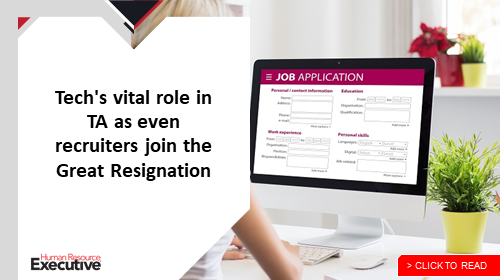Just a few years ago, Tony was a young man who, in many ways, typified the under-30 generation in the American workforce. One of the 63% of American youth who leaves school before earning a college bachelor’s degree—even with a diploma seen as the ticket for admission to the corporate workforce—Tony took a job after high school as a barista. Fortunately for him, it happened to be the coffee shop in the office lobby for a leading high-tech company, IBM.
“He talked to one of the IBM-ers and asked him to mentor him,” recalls Kelli Jordan, director of IBM Career, Skills and Performance. “So, you’d find them in the coffee shop every afternoon, working on different computer science and coding problems.”
The young man, who also enrolled in computer courses at a local community college, had very good timing. Led by Jordan, IBM had just launched a program, the New Collar Initiative, that looked to identify and train skilled workers without a college degree, and remove barriers to their hiring. The program was designed with job candidates like Tony in mind. He joined the second cohort of an IBM-wide apprenticeship program in 2018, and today the former barista is a full-time software developer.

Both IBM and some of its newer hires like Tony are on the cutting edge of a movement that could radically change corporate hiring practices, while bolstering diversity in the workplace. The idea is to rethink the necessity of university degrees and look increasingly toward certification through shorter, more focused training around specific skills. The greatest reinvention around educational credentials and the workforce since World War II’s G.I. Bill, which launched America’s surge in college enrollment, is well underway.
See also: Great Resignation? At IBM, it’s the Great Reevaluation
“The skills-first approach really came about because we realized that the way that companies traditionally hired—that really strong linkage between educational attainment and employment—wasn’t necessarily the most inclusive method of hiring,” says Jordan of IBM, one of the first firms to start dropping degree requirements for some key jobs five years ago. Given that nearly two-thirds of Americans don’t hold a bachelor’s degree, “if you’re requiring that on your job postings,” she says, “you’re automatically excluding a huge portion of the population that may actually have the qualifications.”
A changing context
The idea of moving away from an overreliance on college credentials was already underway—especially at bellwether tech firms like Google, Apple and Tesla—when two giant shockwaves struck the American labor market in 2020. Suddenly, the COVID-19 pandemic—which radically changed the dynamics of hiring and retention, with job seekers gaining clout—and the racial reckoning that accompanied the massive George Floyd protests brought a realization: Many HR leaders said that a different mindset around college credentials could both widen the pool of skilled applicants and also help firms reach more ambitious goals around diversity and equity.
 Sean Gallagher, founder and executive director of Northeastern University’s Center for the Future of Higher Education and Talent Strategy, who wrote 2016’s The Future of University Credentials, said it’s not surprising that Big Tech was a little quicker to rethink educational attainment than other types of businesses.
Sean Gallagher, founder and executive director of Northeastern University’s Center for the Future of Higher Education and Talent Strategy, who wrote 2016’s The Future of University Credentials, said it’s not surprising that Big Tech was a little quicker to rethink educational attainment than other types of businesses.
“A small part of this story has been Silicon Valley investors and disruptors and different policy leaders saying, ‘Let’s tear down the college system and build something cheaper and more innovative,’ ” Gallagher says. Thus, there was a small flurry of start-up ventures—often riding rapid advances in online learning technology—whose success in skills-based courses have convinced more traditional institutions, from community colleges to ivy-draped private universities, that they needed similar offerings to keep pace.

The recent numbers—swelled in the pandemic by job-changing, mid-career workers—have been impressive. Digital badges—the most popular form of learning certification—nearly doubled from 24 million in 2018 to 43 million in 2020, and that growth likely accelerated after COVID-19 arrived. Experts say as many as 40% of working adults now have a non-degree skills certification. But the greatest growth potential remains younger workers looking to enter the labor market without a four-year degree. While decades of rising tuition—triggering an astronomical $1.7 trillion U.S. college debt crisis—has made more families wary of expensive four-year curricula, getting corporate America to change its hiring requirements has been a tougher nut to crack.
This challenge was driven home by a survey of some 750 human resource executives conducted and released in late 2021 by the 1EdTech Foundation, a non-profit trying to enhance connections between educators and employers around training. The survey found that a significant number of the HR leaders—some 36%—have recently relaxed or even eliminated college-degree requirements for some entry-level positions, a phenomenon that accelerated under the COVID-19 recruitment woes.
Related: 10 themes from HR Tech Virtual to help you prepare for the coming decade
Interestingly, nearly a third of the survey respondents said a key reason for change was growing frustration with the types of job candidates emerging from colleges and universities, raising a disconnect that existed before the pandemic. That said, the proverbial glass is still half-empty, with more than half of people managers still expressing a lack of awareness about alternative credentials such as digital badges.
Rob Abel, the president of the 1EdTech Foundation, says he expects employer knowledge about these non-degree pathways will grow rapidly in the near future because such a diverse array of educational institutions is launching and promoting new programs. Says Abel: “Most people think of the university as one of the top 100 schools like Harvard but there are another 3,800 that are more consumer-focused and that are more focused on going where the student needs to go.” Abel’s outfit has already targeted the next level of integration—developing a common language and agreed-on standards for these new skills certifications that will be universally recognized—when a worker changes jobs, for example.
A workforce for all at Google
The deep involvement of high-tech firms like Google is leading the revolution forward. For some time, the Silicon Valley search-engine icon has drilled into the need to find exceptional job candidates who’d lacked college opportunities. Brendan Castle, vice president of Google Recruiting, said the company’s ideas about building its workforce have evolved over two decades. “Early on, our focus was on finding anyone with the right technical skills to do the job,” Castle says. ‘The goal was to hire fast to build a workforce. Now, 20 years later, our processes have evolved to ensure we build the right workforce—one that represents every person using our products.”
 So, Google ditched a college-degree requirement for most job openings, weighing other factors such as relevant experience. When the firm experienced some struggles in recruiting candidates for IT support jobs, it partnered with a non-profit called Year Up to create a skills-based training program targeting disadvantaged youth. The success of its in-house effort convinced management that Google Career Certificates could both add more job categories—such as project management—and also scale up dramatically, serving the broader U.S. job market.
So, Google ditched a college-degree requirement for most job openings, weighing other factors such as relevant experience. When the firm experienced some struggles in recruiting candidates for IT support jobs, it partnered with a non-profit called Year Up to create a skills-based training program targeting disadvantaged youth. The success of its in-house effort convinced management that Google Career Certificates could both add more job categories—such as project management—and also scale up dramatically, serving the broader U.S. job market.
Related: How Google is making DE&I more than a buzzword
By the start of 2022, the program had already trained some 50,000 graduates in fields such as data analytics—the most popular—when Google announced it was funding a massive, $100 million expansion. It also hoped to make the program self-sufficient through no-interest loans that would only be paid back when certificate holders landed jobs paying more than $40,000. Google and its non-profit partners such as Year Up and Merit America hope to produce thousands of additional graduates.

Google’s Castle explains that the company believes hiring should be less about the name of the college on a degree and more about both the worker’s skills and something he called the growth mindset. “When we hire at Google, we’re not just thinking about filling the immediate role,” he says. “We want someone who is going to meet new challenges as they come and grow into new responsibilities over time.”
An opportunity to ‘widen the aperture’
Since May 2020, the promises that many corporations made around increasing diversity and equity in hiring after millions took to the streets of America to protest the Minneapolis police killing of George Floyd have helped to widen the conversation around college credentials beyond the giants of Big Tech. A year later, Kenneth Frazier—the leader of the pharmaceutical company Merck and one of a handful of Black CEOs of Fortune 500 companies—told the Wall Street Journal’s CEO Council Summit that eliminating college credentialing could open the door for more hiring of skilled Black workers, and thus compensate for education inequities that had knocked some off the path to a bachelor’s degree.
“It’s really important for us to recognize that, because people haven’t had an opportunity early in their lives, it doesn’t mean that they can’t make a real contribution to your company,” Frazier told the forum. Frazier is currently co-chair of a new initiative called the OneTen Coalition, through which 35 firms have pledged to hire 1 million Black Americans, including those who lack opportunities to earn a four-year diploma, over the next decade. The coalition plans to work with, and strengthen, the new universe of schools and organizations offering shorter-term skills credentials.
 At IBM, Jordan says, the company was thinking about a broader kind of diversity in the workforce—not only around racial equity, but a wider range of perspectives and life experiences—when the tech giant launched its New Collar initiative in 2017. “Diverse perspectives are really important when you think about technology,” she explains. “When you’re building a project with a homogeneous team, you’re not thinking of all those perspectives. You’re not thinking about how somebody could come in and hack your product, or how to meet the needs of all consumers.”
At IBM, Jordan says, the company was thinking about a broader kind of diversity in the workforce—not only around racial equity, but a wider range of perspectives and life experiences—when the tech giant launched its New Collar initiative in 2017. “Diverse perspectives are really important when you think about technology,” she explains. “When you’re building a project with a homogeneous team, you’re not thinking of all those perspectives. You’re not thinking about how somebody could come in and hack your product, or how to meet the needs of all consumers.”
In seeking to, in Jordan’s words, “widen the aperture of our pipeline” to attract job candidates that its other tech rivals were missing, one of IBM’s first steps was to look at which jobs didn’t necessarily call for a bachelor’s degree. Since the initiative launched, more than 50% of the job categories at IBM—in areas like cloud computing or cybersecurity—no longer require four years of college.
But like Google and other companies on the cutting edge of this change, IBM has also played an active role on the educational side of the equation, with an array of programs to create the kind of candidates it could hire without a college sheepskin. The firm’s IBM Skills Build is a massive global array of free training opportunities that range from bricks-and-mortar high school classes to online learning, offering digital badges to students with the ambitious goal of reaching 20 million people by 2030.
 Most learners from the program will take their talents elsewhere in the job market, but IBM is also advancing its in-house diversity goals through an apprentice program that has opened up 25 different career pathways to about 1,000 students, paid to take part in the 12-to-24-month program. In one sense, the array of overlapping initiatives around job training—IBM has also been funding a Pathways in Technology Early College High Schools (P-TECH) program over the last decade—point to the challenges in disrupting the deeply entrenched, conventional paths of educational attainment.
Most learners from the program will take their talents elsewhere in the job market, but IBM is also advancing its in-house diversity goals through an apprentice program that has opened up 25 different career pathways to about 1,000 students, paid to take part in the 12-to-24-month program. In one sense, the array of overlapping initiatives around job training—IBM has also been funding a Pathways in Technology Early College High Schools (P-TECH) program over the last decade—point to the challenges in disrupting the deeply entrenched, conventional paths of educational attainment.
“The college degree is a blunt mechanism that lazy employers require,” Northeastern’s Gallagher says, noting the supply and demand upheaval of the so-called Great Resignation in the job market as well the challenge of sifting through so many online resumes is finally accelerating the demand for change. He hoped the rapid changes would inspire HR leaders to play a more aggressive role in recognizing and standardizing the new skills credentials. “Some of it does start with technology, with the HR executive who is the validator of some of these new commercial platforms,” Gallagher explains.
IBM’s Jordan agrees that—perhaps counterintuitively—cooperation among HR leaders is critical for the skills-first approach to gain widespread acceptance. She encourages executives to join nascent alliances like the OneTen Coalition to learn best practices from others also looking to expand their talent pool. She notes that IBM, for example, shares the playbooks and key materials from its apprenticeship program with other members of the Consumer Technology Association.
“Having so many people talking about hiring and this concept of ‘New Collar,’ ” she says, “really makes it much easier for a company to start down this path than it would have been five years ago.”

